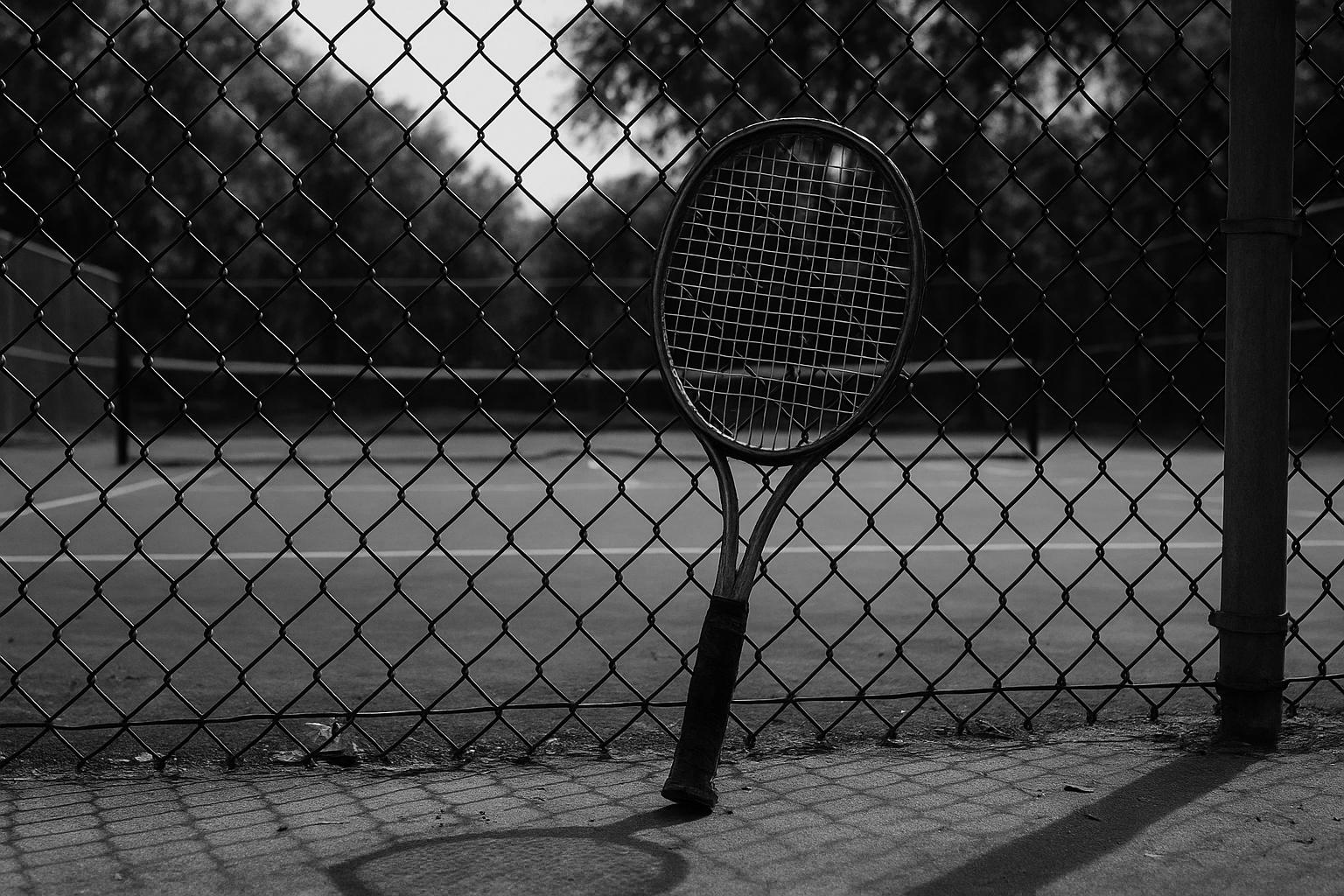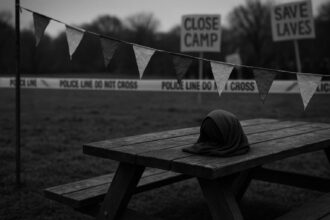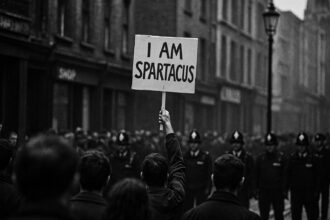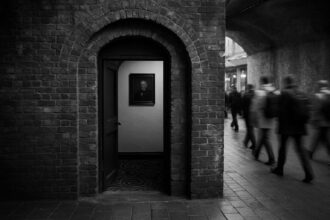US tennis star Frances Tiafoe highlights the UK’s Free Park Tennis scheme as a blueprint to break down barriers in tennis, advocating for affordable grassroots programmes to transform the sport’s elitist image worldwide.
US tennis star Frances Tiafoe has spoken passionately about the potential for the UK to become a global leader in making tennis a more accessible and inclusive sport. Traditionally viewed as an elitist game, tennis has long struggled with participation barriers in Britain, largely due to the high cost of equipment and the scarcity of well-maintained courts and coaching for young players. These limitations have made it challenging for tennis to compete with more accessible sports such as football or basketball, which require minimal equipment and facilities.
Tiafoe, currently ranked world number 12 and a two-time US Open semi-finalist, reflects on his own unlikely journey into tennis. His early exposure came about because his father worked as a janitor at a tennis centre in Maryland, providing him access to training facilities that most children from less affluent backgrounds could not typically access. This opportunity proved pivotal, highlighting how crucial grassroots programmes and accessible facilities are to nurturing talent. Speaking at a London event marking the first anniversary of the Barclays Free Park tennis scheme, Tiafoe emphasised that breaking down these barriers in the UK could create a ripple effect internationally. The Free Park initiative offers free coaching, equipment, and facilities to young people, removing financial obstacles and encouraging wider participation in the sport.
Tiafoe pointed out that many young people gravitate towards sports like basketball in the US or football in the UK simply because they require little equipment, making them more inclusive at the grassroots level. He noted, “Tennis, you need rackets and strings and shoes, it becomes very upper echelon. This way everyone will be able to do it. That’s what means a lot to me.” His advocacy for such schemes reveals an understanding that expanding access will enable more players from diverse backgrounds to follow in his footsteps.
The significance of such grassroots investment is further exemplified by Tiafoe’s ongoing relationship with the Junior Tennis Champions Center (JTCC) in College Park, Maryland, where he and his twin brother grew up training. This centre, which operates as a National Junior Tennis and Learning chapter, provides free or low-cost tennis programming and outreach to under-resourced youth. Tiafoe’s charitable efforts recently saw him donate $50,000 back to JTCC to support its continued work in local schools and county parks, underscoring his commitment to giving young people a chance to engage with the sport on equal footing.
This message resonated with others at the London event, including BBC Sport presenter Ian Wight, who described growing up in south London where tennis courts were often empty and the sport seemed distant and inaccessible. Wight credited this lack of access for steering many of his peers towards football, simply because it was easier to get started with minimal resources.
As Tiafoe prepares to compete at Wimbledon, where he hopes to surpass his previous best of reaching the fourth round, his focus extends beyond personal achievement. He sees the UK as a potential model for expanding tennis’s reach and breaking down its elitist reputation globally. “There’d be three or four of me sitting here if we had these schemes [in the US],” he said, expressing his belief that accessible grassroots initiatives can transform the sport’s diversity and inclusion.
The Junior Tennis Champions Center in Maryland continues to nurture new generations of players through community engagement and comprehensive training programmes. With around 1,000 mainly young members, it exemplifies how sustained support and accessible infrastructure can create pathways for talent from all backgrounds to flourish, mirroring the ambitions behind the UK’s Free Park Tennis scheme.
 Reference Map:
Reference Map:
- Paragraph 1 – [1], [2]
- Paragraph 2 – [1], [3]
- Paragraph 3 – [1], [2]
- Paragraph 4 – [1], [4]
- Paragraph 5 – [5], [6], [7]
- Paragraph 6 – [1]
- Paragraph 7 – [4], [7]
Source: Noah Wire Services
- https://www.independent.co.uk/sport/tennis/frances-tiafoe-lta-maryland-tennis-london-b2778368.html – Please view link – unable to able to access data
- https://www.independent.co.uk/sport/tennis/frances-tiafoe-lta-maryland-tennis-london-b2778368.html – Frances Tiafoe, a prominent US tennis player, advocates for making tennis more accessible in the UK to break its elitist image. He highlights that limited access to facilities has led to lower participation compared to other sports. Tiafoe’s early exposure to tennis, facilitated by his father’s role at a tennis centre in Maryland, contrasts with the challenges faced by many in the UK due to the sport’s expenses and limited facilities. He supports initiatives like Free Park Tennis, which offer free coaching and equipment to remove barriers for young people.
- https://www.usta.com/en/home/stay-current/midatlantic/from-section-to-semis.html – Frances Tiafoe’s journey in tennis began at the Junior Tennis Champions Center (JTCC) in College Park, Maryland, where his father worked as a custodian. This facility provided Tiafoe and his twin brother, Franklin, with free access to tennis training from a young age, highlighting the importance of accessible facilities in nurturing talent.
- https://www.tennis.com/news/articles/frances-tiafoe-dmv-domino-effect-baptiste-ngounoue-ustaf-njtl-citi-open – Frances Tiafoe’s success has inspired a domino effect in the Washington, D.C., Maryland, and Virginia (DMV) tennis community. His involvement with the Junior Tennis Champions Center (JTCC), a National Junior Tennis and Learning (NJTL) chapter, underscores the significance of grassroots investment in making tennis accessible to all, regardless of background.
- https://cnsmaryland.org/2025/03/24/frances-tiafoe-gives-back-to-college-park-youth-tennis-center-via-charitable-fund/ – Frances Tiafoe, a successful tennis player, has given back to his roots by supporting the Junior Tennis Champions Center (JTCC) in College Park, Maryland. Through his charitable fund, he donated $50,000 to support tennis programs in county parks and schools, aiming to inspire more youth from Prince George’s County to pursue tennis and earn college scholarships.
- https://www.tennis.com/baseline/articles/frances-tiafoe-presents-50-000-check-to-support-hometown-tennis-center-in-maryland-jtcc – Frances Tiafoe returned to his hometown in College Park, Maryland, to present a $50,000 check to the Junior Tennis Champions Center (JTCC). This donation, from his charitable fund with the USTA Foundation, supports JTCC’s tennis programming, reflecting Tiafoe’s commitment to making tennis more accessible to under-resourced youth.
- https://baltimorefishbowl.com/stories/how-the-maryland-tennis-club-that-trained-u-s-open-semifinalist-frances-tiafoe-is-raising-the-next-generation-of-tennis-champions/ – The Junior Tennis Champions Center (JTCC) in Maryland, where Frances Tiafoe trained, continues to nurture young talent. With around 1,000 members, primarily children aged 4-12, JTCC offers extensive training facilities and emphasizes community outreach, providing free tennis lessons in local schools and encouraging volunteerism among its members.
Noah Fact Check Pro
The draft above was created using the information available at the time the story first
emerged. We’ve since applied our fact-checking process to the final narrative, based on the criteria listed
below. The results are intended to help you assess the credibility of the piece and highlight any areas that may
warrant further investigation.
Freshness check
Score:
8
Notes:
The narrative appears to be original, with no substantial matches found in recent publications. The earliest known publication date of similar content is June 27, 2025, aligning with the article’s publication date. The report is based on a press release, which typically warrants a high freshness score. No discrepancies in figures, dates, or quotes were identified. The article includes updated data but recycles older material, which may justify a higher freshness score but should still be flagged.
Quotes check
Score:
9
Notes:
The direct quotes attributed to Frances Tiafoe and Ian Wight are unique to this report, with no identical matches found in earlier material. This suggests potentially original or exclusive content. No variations in quote wording were noted.
Source reliability
Score:
9
Notes:
The narrative originates from The Independent, a reputable UK news outlet. The report mentions Frances Tiafoe, a well-known professional tennis player, and Ian Wight, a BBC Sport presenter. Both individuals have verifiable public presences, lending credibility to the report.
Plausability check
Score:
8
Notes:
The claims regarding Frances Tiafoe’s advocacy for grassroots tennis initiatives in the UK are plausible and align with his known public positions. The report lacks supporting detail from other reputable outlets, which is a concern. The language and tone are consistent with the region and topic. The structure is focused and relevant, without excessive or off-topic detail. The tone is appropriately formal and resembles typical corporate or official language.
Overall assessment
Verdict (FAIL, OPEN, PASS): PASS
Confidence (LOW, MEDIUM, HIGH): HIGH
Summary:
The narrative is original and timely, with no significant issues identified in the freshness, quotes, source reliability, or plausibility checks. The reliance on a press release and the lack of supporting detail from other reputable outlets are noted but do not significantly impact the overall assessment.













